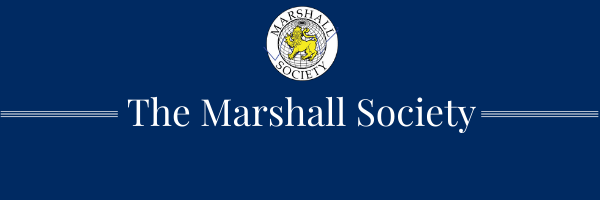Economic Surplus: Summer Holidays 5

Economic Surplus by The Marshall Society
21 September 2021
"I'm not an economist and we all know economists were created to make weather forecasters look good." ― Rupert Murdoch
Welcome to the Economic Surplus, the newsletter brought to you by the Marshall Society! We are the University of Cambridge's flagship economics society. Every week, we bring you our bespoke commentary on economic trends, updates on our exclusive members' events as well as a summary of the headlines you can't ignore! You've probably received this email because you were previously subscribed to the Marshall Society's old email list, but if you have been forwarded this by a friend, feel free to subscribe here!
Marshall's Thoughts:
This week’s Marshall’s Thoughts are written by George Moran.
Past newsletters have discussed the risk of inflation arising from the unprecedented post-COVID-19 government and central bank stimulus. Data this week strengthens the position of inflation hawks and raises the possibility that we could be entering an era of stagflation.
Recent central bank meetings have projected a clear message that surging inflation is transitory, and no contractionary response is required to reign inflation in. The ECB, Fed and Bank of England are all singing the same tune. The ECB projects inflation will peak at 3.0% before falling to 1.5% in mid-2022 (which is bizarrely below their 2.0% target). The Bank of England sees inflation peaking at 4%, well above their target, and the Fed recently emphasised at Jackson Hole that inflation was being driven by temporary pressures.
The credibility of these targets has been brought into question in recent weeks. At the ECB’s meeting on the 9th of September they once again raised their inflation projections and UK data this week saw the August CPI rise by 3.2%. This was significantly above economist estimates and required Andrew Bailey to write a letter of explanation to the Chancellor. However, the picture for the UK economy is not the standard demand-pull inflation scenario resulting from excess savings being released. Data last Friday showed a massive drop in retail sales in August of 0.9% well below economist forecasts which actually predicted retail sales would RISE by 0.5%. Accompanied with data showing GDP grew by only 0.1% in July it appears that the UK is undergoing a classic case of stagflation. Inflation is rising to worryingly high levels while economic activity appears to be barely advancing.
Stagflation is a very worrying term to be referencing for economists and it could of course just be the result of temporary supply chain pressures and commodity price inflation. However, it does appear that the programmes of the Bank of England have not stimulated economic activity as much as anticipated. Of course, the furlough scheme and quantitative easing do nothing to tackle the fundamental cause of pre-COVID stagnation – low productivity.
In Case You Missed It:
England eases Covid travel curbs and simplifies traffic light system | FT - The amber list of countries has been abolished and pre-departure tests for double-jabbed travellers scrapped. The cost of paying for tests had been a major deterrent for people in England wanting to take trips abroad. This has resulted in a surge of travel bookings.
The three main candidates in the German election face off in the final debate | The Guardian - Centre-left frontrunner Olaf Scholz gets another boost after the second of three televised debates between would-be Merkel successors. The German election is less than 10 days away and it seems like Olaf Scholz will become Chancellor due to a late surge in the polls. He is likely to form a centre-left coalition.
America’s consumer-price inflation stays above 5% in August | The Economist - Although the headline CPI rate is 5.3% the Fed’s “trimmed mean” inflation suggests that the Fed is still on their 2% target. August was the third consecutive month with inflation at this scale. The Fed’s measure suggests that high inflation is driven on by a small number of things that are related to the relaxation of pandemic restriction such as the price of airline tickets.
Fed Chief Powell, other officials owned securities central bank bought during Covid pandemic | CNBC - Although the headline CPI rate is 5.3% the Fed’s “trimmed mean” inflation suggests that the Fed is still on their 2% target. August was the third consecutive month with inflation at this scale. The Fed’s measure suggests that high inflation is driven on by a small number of things that are related to the relaxation of pandemic restriction such as the price of airline tickets.
That's it from us for now!
The Marshall Society